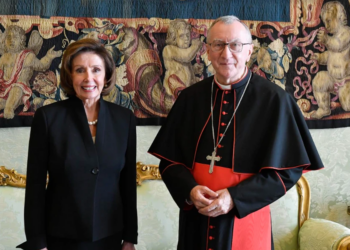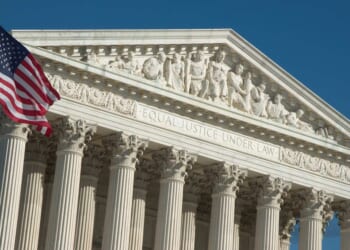The Supreme Court is handling several major cases that could shake up the 2026 midterms, potentially giving Republicans a competitive edge.
Decisions in three election-related cases are expected by the end of the Supreme Court’s term in June and may reshape the 2026 election landscape.
Questions at play include race-based redistricting in Louisiana v. Callais, limits on party’s coordinated spending with candidates in National Republican Senatorial Committee (NRSC) v. Federal Election Commission (FEC) and when candidates have standing to challenge state election rules in Bost v. Illinois State Board of Elections.
“The impact of these Supreme Court cases on the midterms will depend on the timing of the decisions,” said Jason Snead, executive director of Honest Elections Project, told the Daily Caller News Foundation.
Race-Based Redistricting
“Callais undoubtedly has the largest potential impact on the midterms,” Snead said. “An early, positive ruling could end mandates for race-based redistricting and open the door for more states to do race-neutral redistricting before 2026.”
Louisiana’s Secretary of State asked for a ruling by December or early January, before qualifying dates for the state’s primary.
An estimated 19 districts could be redrawn in favor of Republicans if the Supreme Court limits Section 2 of the Voting Rights Act, Politico reported. The New York Times estimated Democrats could lose around a dozen currently held minority-majority districts.
“Too many federal judges, at the behest of the DNC, the NAACP, and other liberal advocacy groups, have been misusing the VRA to protect the Democrat Party, not stop racial discrimination in voting,” Hans von Spakovsky, senior legal fellow at the Heritage Foundation’s Edwin Meese III Center for Legal and Judicial Studies, told the DCNF.
During oral arguments in October, the Supreme Court seemed inclined to limit the intentional use of race to create congressional districts. (RELATED: Supreme Court Signals Democrats’ Days Of Drawing Up Congressional Districts By Race Might Be Over)
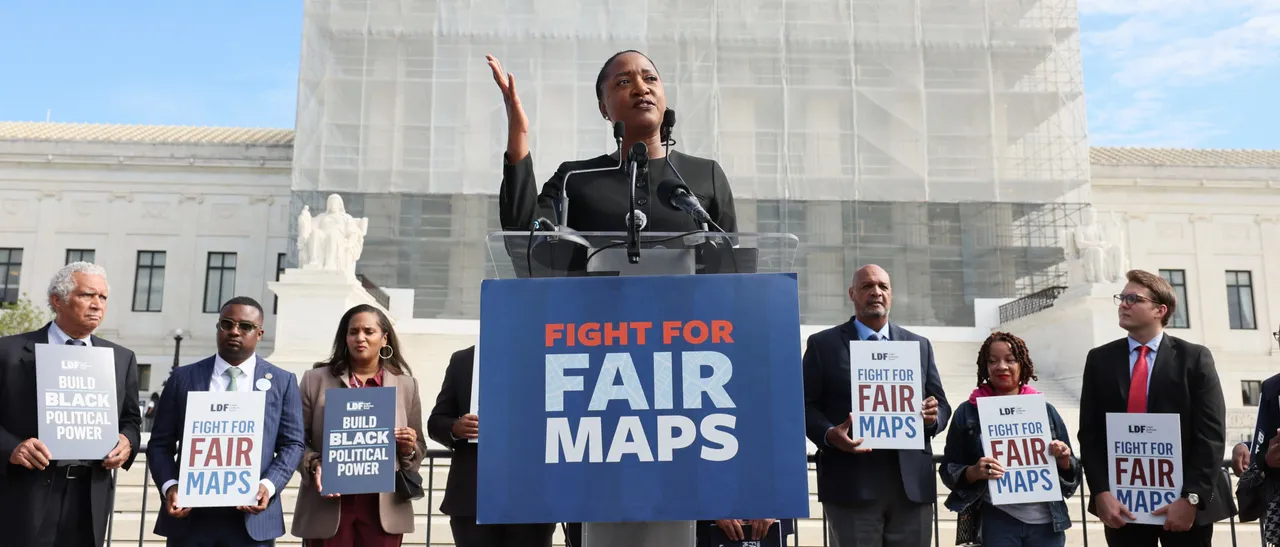
WASHINGTON, DC – OCTOBER 15: Janai Nelson speaks at the rally as activists and participants gather in front of the Supreme Court of the United States during Supreme Court re-argument of Louisiana v. Callais on October 15, 2025 in Washington, DC. (Photo by Jemal Countess/Getty Images for Legal Defense Fund)
While the ruling could affect Louisiana races, “there might not be time for other states affected by this to redraw districts before the mid-terms,” von Spakovsky told the DCNF.
Coordinated Spending Limits
The Supreme Court will hear a Republican challenge to FEC rules limiting the amount a party can spend in coordination with candidates in December, which von Spakovsky believes will have the biggest immediate impact of the high court’s election cases.
“Even if the decision is released on the last day of the Supreme Court’s term, that would still be four months before election day for the 2026 midterms,” he said.
“If we assume that the Court determines that the coordinated spending limits are a violation of the First Amendment, then the RNC and DNC would be immediately freed up to spend as much money as they want to support their candidates in coordination with their campaigns,” he continued. “That could inject a much larger amount of campaign spending into congressional and other campaigns.”
Limits on coordinated party expenditures for 2025 Senate general election nominees currently range from $127,200 to $3,946,100 depending on the state, according to the FEC. (RELATED: EXCLUSIVE: RNC Deploys Election Integrity Team To New Jersey, Virginia In Midterm Blitz)
Though the Department of Justice (DOJ) generally defends federal statutes, the Trump administration determined “that this is the rare case that warrants an exception to that general approach.”
“This case involves a campaign-finance restriction that violates core First Amendment rights—a type of restriction that has previously led the government to file a brief expressing skepticism of the constitutionality of a federal statute,” the DOJ’s brief filed with the Supreme Court states.
Democratic party committees, which intervened in the case, wrote that they have “long relied upon FECA’s coordinated campaign expenditure limit to structure their mission-critical activities across the country.”
Eliminating the limit “would require the Democratic Party Committees to substantially reshape their operations and forfeit carefully developed tactical efficiencies,” they wrote.
Candidate Lawsuits Over Election Rules
The Supreme Court heard oral arguments for Bost v. Illinois State Board of Elections in October. Snead anticipates this case “may have only a limited impact on the midterms, unless a decision is announced before the summer.”
“After all, the case centers on whether political candidates can challenge voting laws that harm their campaigns without having to wait to file post-election, ” he said. “A ruling in the middle of next year won’t leave much time for new lawsuits to be filed or heard before running into Purcell problems. That’s the principle that courts should refrain from changing voting rules just prior to an election for fear of causing chaos.”
Though he believes the Supreme Court will side with Bost, von Spakovsky also told the DCNF there “will not be time for this to affect the 2026 election.”
“Because the Supreme Court will remand the case to the original district court that said Bost didn’t have standing, so that the case can proceed in the lower court to a decision on the substantive issue,” he said.
The underlying Illinois election rule Bost is challenging allows absentee ballots to be counted up to 14 days after Election Day, if the are postmarked on or before that day. The rules were amended to include the 14-day deadline in 2005, according to Bost’s petition.
Any impact from election-related cases that isn’t felt in 2026 “could prove to be extremely consequential in a contentious 2028 presidential cycle and beyond,” Snead told the DCNF.
All content created by the Daily Caller News Foundation, an independent and nonpartisan newswire service, is available without charge to any legitimate news publisher that can provide a large audience. All republished articles must include our logo, our reporter’s byline and their DCNF affiliation. For any questions about our guidelines or partnering with us, please contact licensing@dailycallernewsfoundation.org.

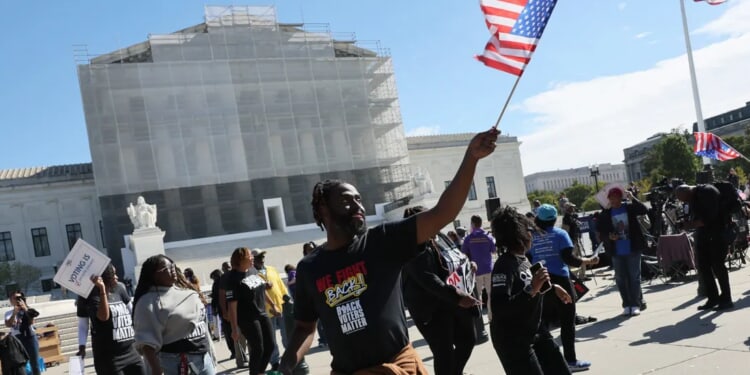






![Florida Officer Shot Twice in the Face During Service Call; Suspect Killed [WATCH]](https://www.right2024.com/wp-content/uploads/2025/12/Inmate-Escapes-Atlanta-Hospital-After-Suicide-Attempt-Steals-SUV-Handgun-350x250.jpg)
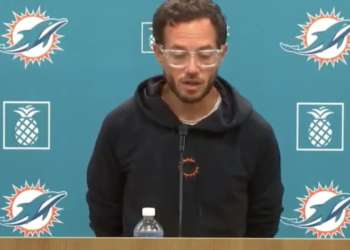
![Keith Ellison Caught Promising to Fight State Agencies for Somali Fraudsters [WATCH]](https://www.right2024.com/wp-content/uploads/2026/01/Keith-Ellison-Caught-Promising-to-Fight-State-Agencies-for-Somali-350x250.jpg)


